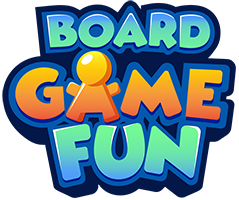How to Play Napoleon
Ready to conquer a classic card game? Napoleon is a charming trick-taking challenge steeped in history and strategy—perfect for busy adults looking for quick, affordable fun. Whether you’re hosting a casual game night or exploring classic card games, this guide equips you with the rules and strategies to play confidently and enjoyably.
Brief Game Overview
- Objective: Predict (bid) how many tricks your team can win, then score if you meet or exceed that bid.
- Gameplay Style: Trick-taking, similar to other classics like Whist or Euchre.
- Player Count: 4–6 players typically, though you can adjust for smaller groups.
In just a few steps, you’ll learn the basics of gameplay, key strategies, and tips to avoid common pitfalls. Let’s dive in!
Getting Started – What You’ll Need
Essential Materials:
- A Standard 52-Card Deck: Remove the jokers.
- 4–6 Players: The game shines with these numbers.
- Optional: Pen and paper if you want to keep a running tally of scores over multiple rounds.
Budget Considerations:
A deck of cards is affordable and widely available. Opt for durable playing cards if you’re planning to make this a regular activity. No need for fancy equipment—just shuffle and deal!
Step-by-Step Instructions on How to Play the Game
Setup
-
- Seat 4–6 players around a table so everyone can easily see and reach the cards.
- Shuffle and Deal: Distribute cards evenly among players. Depending on the exact number of players, some might get one card more or less.
- If distribution is uneven, set aside extra cards face down before dealing.
Bidding Phase
- The player to the dealer’s left starts the bidding.
- Each player announces a bid—the total number of tricks their team can win, plus the trump suit.
- The highest bidder becomes the “Napoleon”, who leads the play.
Playing Tricks
- The Napoleon leads by placing a card of their choice on the table.
- Players must follow suit if possible; if they don’t have that suit, they can play any card (including a trump).
- The trick is won by the highest card of the suit led or by the highest trump played.
Scoring & Winning
- If the Napoleon’s team achieves its bid (i.e., wins at least the bid number of tricks), they score.
- If they fall short, the opposing team scores.
- Keep a tally: After several rounds, the team with the highest overall score is declared the winner.
Secrets to Win Napoleon
- Calculate Your Bid Wisely: Overbidding is risky, so estimate carefully how many tricks you can realistically secure.
- Lead with Strong Suits: If you control the trump suit, use it strategically to capture critical tricks.
- Bluff in the Bidding Phase: Experienced players may bluff to intimidate others or manipulate the final bid.
- Stay Flexible: Always observe which suits have been played and adapt your strategy on the fly.
Variations & House Rules
- Different Trump Rules: Some groups allow the Napoleon to pick a “no trump” bid, making suit-following more significant.
- Adapt for Fewer Players: While 4–6 is ideal, you can deal extra cards to each player for 3-player games.
- Simplify the Bidding: Newer players can limit bids to increments of 5 tricks (e.g., “I bid 5,” “I bid 10”) to keep it less overwhelming.

Troubleshooting: Common Issues
- Uneven Card Distribution: If you can’t deal evenly, remove a few face-down cards to level things out.
- Confusion Over Bidding: Start with lower bids and work your way up as everyone gets comfortable.
-
Difficulty Following Suit: Remind new players they must follow suit when they can; a few practice hands help.
Frequently Asked Questions
-
Q: Can Napoleon be played with fewer than 4 players?
A: Yes, you can adapt the rules by dealing more cards to each player, but it’s most balanced with 4–6. -
Q: What if two players bid the same amount?
A: The first person to announce that bid takes priority. -
Q: How long does a round take?
A: Typically 15–20 minutes—great for quick sessions. -
Q: Is bluffing a part of the game?
A: Absolutely! Bluffing adds a layer of strategy during the bidding phase.
The Final Shuffle
Napoleon is an accessible, strategic card game that offers hours of entertainment without the hassle of complicated rules or expensive materials. By mastering this game, you’ll be ready to share it with friends and family, creating memorable game nights.
As your confidence grows, consider exploring other classic card games like Euchre or Whist to expand your repertoire. Share this guide with your gaming group or subscribe for more simple how-to guides and gaming tips.
Watch the gameplay in action and see how a typical round unfolds!
Ready to play your first round of Napoleon? Shuffle those cards and lead the charge!


